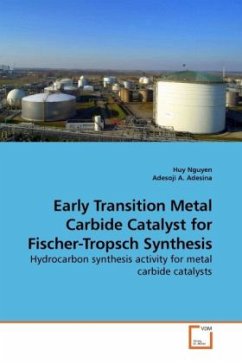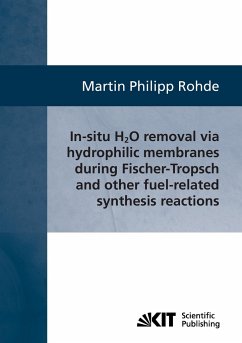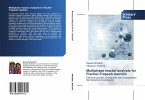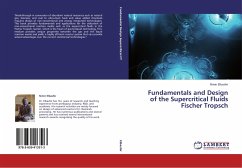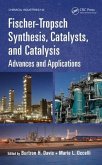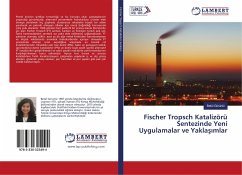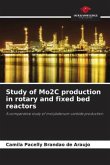Fischer-Tropsch Synthesis (FTS) is the reaction between carbon monoxide and hydrogen to produce gasoline range hydrocarbons. Continuing rise in oil prices and tougher environmental regulations has inspired a resurgent of interests in alternative fuels synthesis technologies. In this book, the suitability of molybdenum and tungsten carbides as FT catalysts has been investigated as a possible cost-effective alternative to noble metals in FTS. The authors introduced a new method for producing high surface area metal carbide catalysts via precipitation from homogeneous solution followed by carburization in a mixture of propane and hydrogen. Catalyst design and optimisation based on statistical strategy was employed to investigate the effect of key carburization variables, namely; time, temperature and gas composition (Hydrogen to Propane ratio) on the physicochemical properties and reaction metrics. Furthermore, the role of support type was examined using four common semiconductor oxides, viz; alumina, silica, titania and zirconia. The solid-state carburization kinetics for the metal carbides synthesis was determined via thermogravimetric analysis.
Bitte wählen Sie Ihr Anliegen aus.
Rechnungen
Retourenschein anfordern
Bestellstatus
Storno

